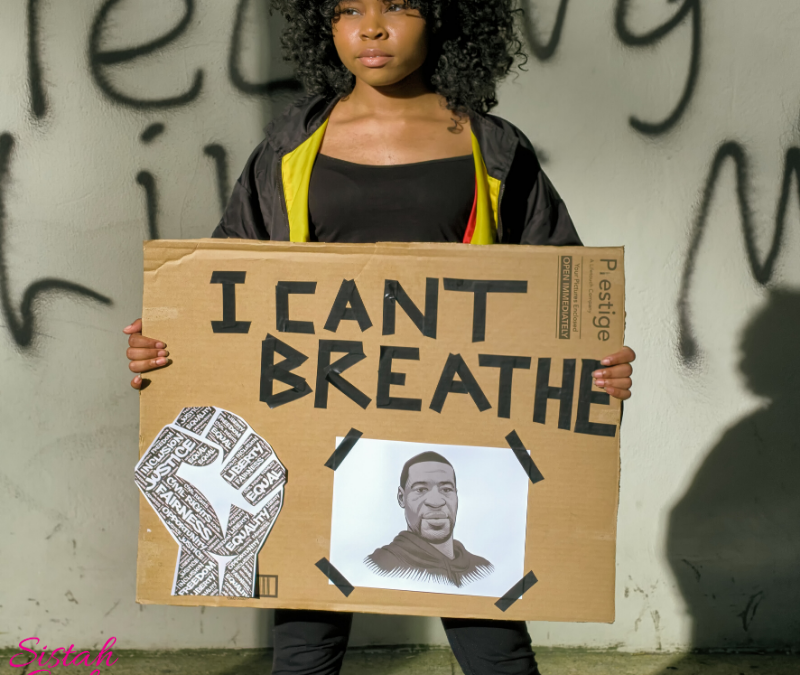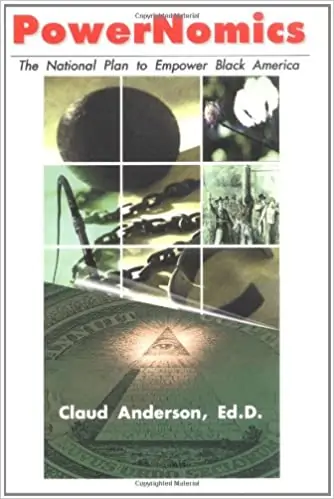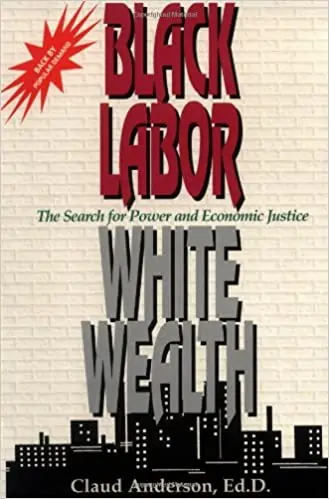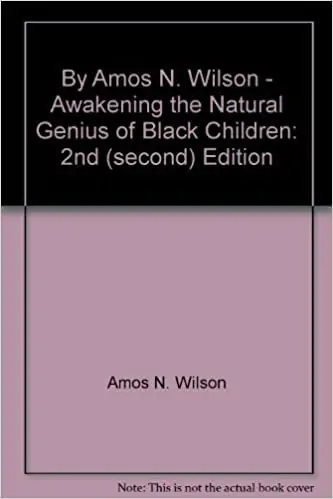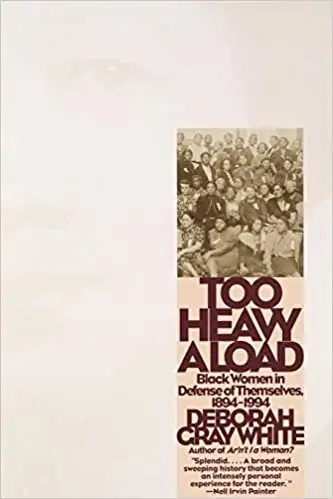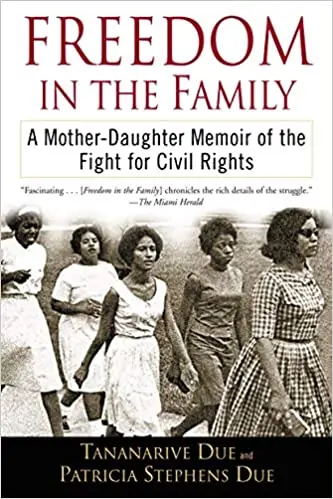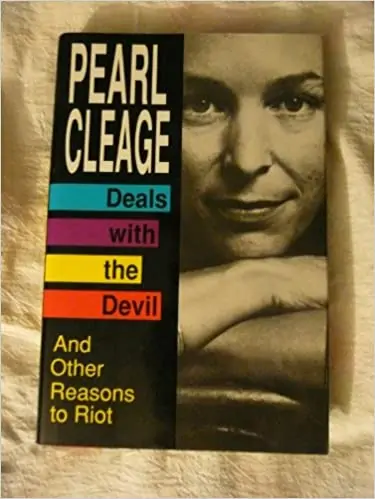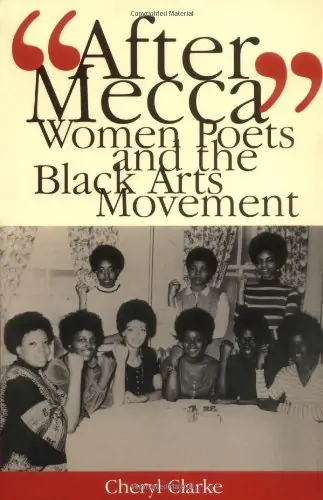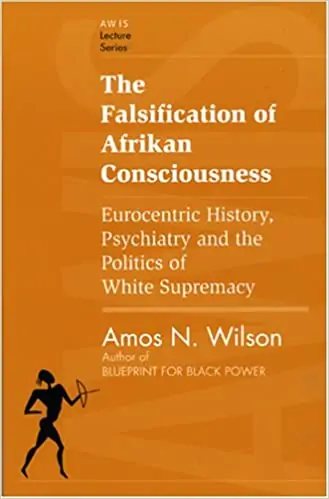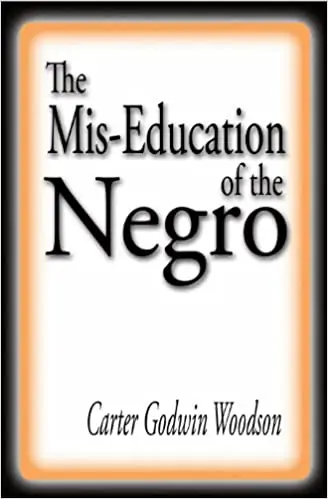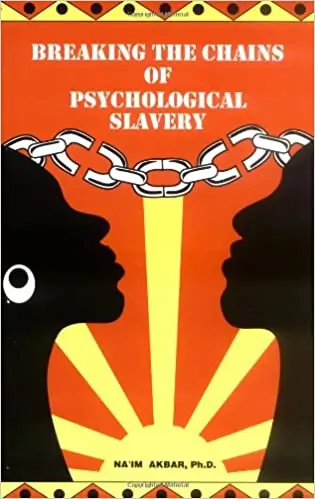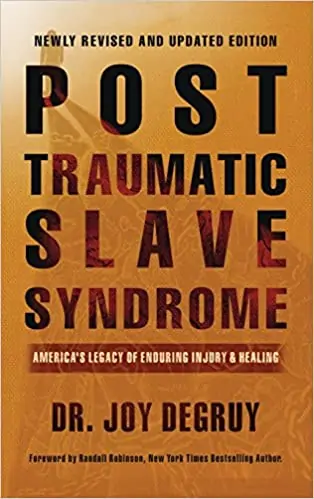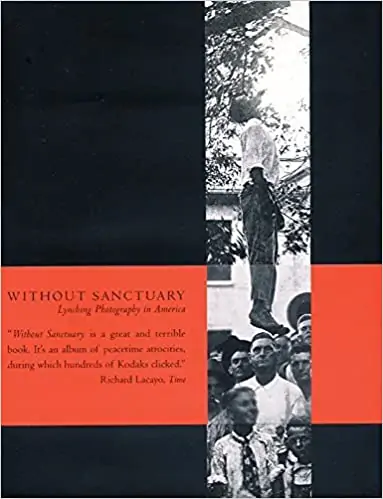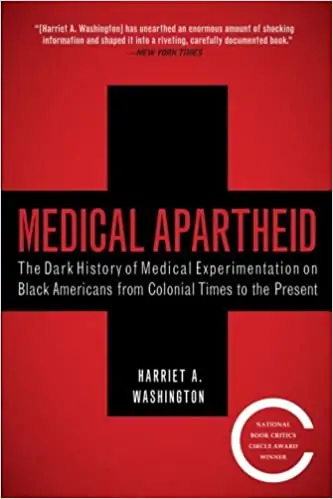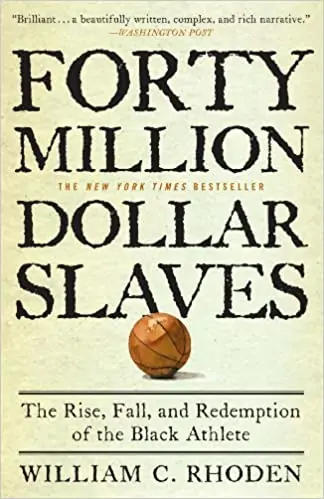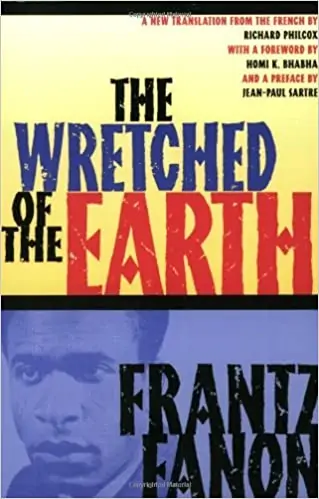Race, Class, & Gender
Sistah Girls, we are in a revolutionary time and the best way to be prepared is to be knowledgable about the issues we face as Black people.
This listicle contains books that speak on racism in America, white supremacy, the wealth gap, psychological slavery, civil rights, policing in America, and so much more. In order to know how to move forward as a people, we must learn from our history, so there are books on slavery and how it affects us today.
Racism and white supremacy in America is systemic, it doesn’t operate in one area of life while leaving other parts out. This listicle also includes books that showcase how they both have affected Black people in all areas of our lives.
It is my hope that these books are read and discussed with your family and friends.
They Were Her Property: White Women as Slave Owners in the American South by Stephanie E. Jones-Rogers
Bridging women’s history, the history of the South, and African American history, this book makes a bold argument about the role of white women in American slavery. Historian Stephanie E. Jones-Rogers draws on a variety of sources to show that slave†‘owning women were sophisticated economic actors who directly engaged in and benefited from the South’s slave market.
Because women typically inherited more slaves than land, enslaved people were often their primary source of wealth. Not only did white women often refuse to cede ownership of their slaves to their husbands, they employed management techniques that were as effective and brutal as those used by slave†‘owning men. White women actively participated in the slave market, profited from it, and used it for economic and social empowerment. Read the full synopsis HERE.
The Isis Papers: The Keys to the Colors by Dr. Frances Cress Welsing
A collection of 25 essays examining the neuroses of white supremacy.
PowerNomics : The National Plan to Empower Black America by Dr. Claud Anderson
In this book, Dr. Anderson offers insightful analysis and action steps blacks can take to redesign core areas of life – Education, Economics, Politics and Religion – to better benefit their race.
The action steps in each area require new empowerment tools that Dr. Anderson presents – a new group vision and a new culture of empowerment – tools designed to counter, if not break many of the racial monopolies in society. Vertical integration and Industrializing black communities are other major concepts and strategies that he presents in the book. Read the full synopsis HERE.
Black Labor, White Wealth : The Search for Power and Economic Justice by Claud Anderson
Dr. Anderson’s first book is a classic. It tracks slavery and Jim Crow public policies that used black labor to construct a superpower nation. It details how black people were socially engineered into the lowest level of a real-life Monopoly game, which they are neither playing or winning.
Black Labor is a comprehensive analysis of the issues of race. Dr. Anderson uses the analysis in this book to offer solutions to America’s race problem.
The Color of Law: A Forgotten History of How Our Government Segregated America by Richard Rothstein
Widely heralded as a “masterful” (Washington Post) and “essential” (Slate) history of the modern American metropolis, Richard Rothstein’s The Color of Law offers “the most forceful argument ever published on how federal, state, and local governments gave rise to and reinforced neighborhood segregation” (William Julius Wilson).
Exploding the myth of de facto segregation arising from private prejudice or the unintended consequences of economic forces, Rothstein describes how the American government systematically imposed residential segregation: with undisguised racial zoning; public housing that purposefully segregated previously mixed communities; subsidies for builders to create whites-only suburbs; tax exemptions for institutions that enforced segregation; and support for violent resistance to African Americans in white neighborhoods. Read full synopsis HERE.
By Amos N. Wilson – Awakening the Natural Genius of Black Children: 2nd (second) Edition by Amos N. Wilson
Triangular Road: A Memoir by Paule Marshall
In Triangular Road, famed novelist Paule Marshall tells the story of her years as a fledgling young writer in the 1960s. A memoir of self-discovery, it also offers an affectionate tribute to the inimitable Langston Hughes, who entered Marshall’s life during a crucial phase and introduced her to the world of European letters during a whirlwind tour of the continent.
In the course of her journeys to Europe, Barbados, and eventually Africa, Marshall comes to comprehend the historical enormity of the African diaspora, an understanding that fortifies her sense of purpose as a writer.
In this unflinchingly honest memoir, Paule Marshall offers an indelible portrait of a young black woman coming of age as a novelist in a literary world dominated by white men.
Too Heavy a Load: Black Women in Defense of Themselves,1894-1994 by Deborah Gray White
Too Heavy a Load celebrates this century’s rich history of black women defending themselves, from Ida B. Wells to Anita Hill. Although most prominently a history of the century-long struggle against racism and male chauvinism, Deborah Gray White also movingly illuminates black women’s painful struggle to hold their racial and gender identities intact while feeling the inexorable pull of the agendas of white women and black men.
Finally, it tells the larger and lamentable story of how Americans began this century measuring racial progress by the status of black women but gradually came to focus on the status of black men-the masculinization of America’s racial consciousness.
Florynce “Flo” Kennedy: The Life of a Black Feminist Radical (Gender and American Culture) by Sherie M. Randolph
Often photographed in a cowboy hat with her middle finger held defiantly in the air, Florynce “Flo” Kennedy (1916–2000) left a vibrant legacy as a leader of the Black Power and feminist movements. In the first biography of Kennedy, Sherie M. Randolph traces the life and political influence of this strikingly bold and controversial radical activist. Rather than simply reacting to the predominantly white feminist movement, Kennedy brought the lessons of Black Power to white feminism and built bridges in the struggles against racism and sexism.
Randolph narrates Kennedy’s progressive upbringing, her pathbreaking graduation from Columbia Law School, and her long career as a media-savvy activist, showing how Kennedy rose to founding roles in organizations such as the National Black Feminist Organization and the National Organization for Women, allying herself with both white and black activists such as Adam Clayton Powell, H. Rap Brown, Betty Friedan, and Shirley Chisholm.
Freedom in the Family: A Mother-Daughter Memoir of the Fight for Civil Rights by Tananarive Due
Patricia Stephens Due fought for justice during the height of the Civil Rights era. Her daughter, Tananarive, grew up deeply enmeshed in the values of a family committed to making right whatever they saw as wrong.
Together, in alternating chapters, they have written a paean to the movement—its hardships, its nameless foot soldiers, and its achievements—and an incisive examination of the future of justice in this country. Their mother-daughter journey spanning two generations of struggles is an unforgettable story.
Shake Loose My Skin: New and Selected Poems (Bluestreak Book 12) by Sonia Sanchez
An extraordinary retrospective covering over thirty years of work, From a leading writer of the Black Arts Movement and the American Poetry Society’s 2018 Wallace Stevens Award–winner.
Shake Loose My Skin is a stunning testament to the literary, sensual, and political powers of the award-winning Sonia Sanchez.
Deals with the Devil And Other Reasons to Riot by Pearl Cleage
Dead-on, to the point, fearless. A third-generation black nationalist feminist, Pearl Cleage recognizes the pure power of telling the uncompromising truth–about African-American life and about the fate of the race in racist America.
Whether she’s writing about her–and her sisters’–defenition of good brother, or why she’s so mad at Miles Davis, DEALS WITH THE DEVIL is filled with Pearl’s most provactive, fascinating, and outrageous insights.
After Mecca”: Women Poets and the Black Arts Movement by Professor Cheryl Clarke
In “After Mecca,” Cheryl Clarke explores the relationship between the Black Arts Movement and black women writers of the period. Poems by Gwendolyn Brooks, Ntozake Shange, Audre Lorde, Nikki Giovanni, Sonia Sanchez, Jayne Cortez, Alice Walker, and others chart the emergence of a new and distinct black poetry and its relationship to the black community’s struggle for rights and liberation.
Clarke also traces the contributions of these poets to the development of feminism and lesbian-feminism, and the legacy they left for others to build on. She argues that whether black women poets of the time were writing from within the movement or writing against it, virtually all were responding to it. Using the trope of “Mecca,” she explores the ways in which these writers were turning away from white, western society to create a new literacy of blackness.
The Falsification of Afrikan Consciousness: Eurocentric History, Psychiatry and the Politics of White Supremacy (Awis Lecture Series) by Amos N. Wilson
“[Exposes] the role Eurocentric history-writing plays in rationalizing European oppression of Afrikan peoples and in the falsification of Afrikan consciousness … [and contends] that the alleged mental and behavioral maladaptiveness of oppressed Afrikan peoples is a political-economic necessity for the maintenance of White domination and imperialism.”
Christopher Columbus and the Afrikan Holocaust: Slavery and the Rise of European Capitalism by John Henrik Clarke
Dr. Clarke has again crushed myths of the Atlantic Slave Trade. The number one myth is “Afrikans are just as much to blame for selling slaves as Europeans.”
The Mis-Education of the Negro by Carter Godwin Woodson
The thesis of Dr. Woodson’s book is that African-Americans of his day were being culturally indoctrinated, rather than taught, in American schools. This conditioning, he claims, causes African-Americans to become dependent and to seek out inferior places in the greater society of which they are a part. He challenges his readers to become autodidacts and to “do for themselves”, regardless of what they were taught:
History shows that it does not matter who is in power… those who have not learned to do for themselves and have to depend solely on others never obtain any more rights or privileges in the end than they did in the beginning.
Breaking the Chains of Psychological Slavery by Na’im Akbar
Are African-Americans still slaves? Why can’t Black folks get together? What is the psychological consequence for Blacks and Whites of picturing God as a Caucasian? Learn to break the chains of your mental slavery with this new book by one of the world’s outstanding experts on the African-American mind.
Post Traumatic Slave Syndrome, Revised Edition: America’s Legacy of Enduring Injury and Healing by Joy a Degruy
In the 16th century, the beginning of African enslavement in the Americas until the ratification of the Thirteenth Amendment and emancipation in 1865, Africans were hunted like animals, captured, sold, tortured, and raped. They experienced the worst kind of physical, emotional, psychological, and spiritual abuse. Given such history, isn’t it likely that many of the enslaved were severely traumatized? And did the trauma and the effects of such horrific abuse end with the abolition of slavery?
Emancipation was followed by one hundred more years of institutionalized subjugation through the enactment of Black Codes and Jim Crow laws, peonage, convict leasing, domestic terrorism and lynching. Today the violations continue, and when combined with the crimes of the past, they result in yet unmeasured injury. What do repeated traumas, endured generation after generation by a people produce? What impact have these ordeals had on African Americans today?
Dr. Joy DeGruy, answers these questions and more. With over thirty years of practical experience as a professional in the mental health field, Dr. DeGruy encourages African Americans to view their attitudes, assumptions, and behaviors through the lens of history and so gain a greater understanding of how centuries of slavery and oppression have impacted people of African descent in America.
Breaking Rank: A Top Cop’s Exposé of the Dark Side of American Policing by Norm Stamper
Opening with a powerful letter to former Tacoma police chief David Brame, who shot his estranged wife before turning the gun on himself, Norm Stamper introduces us to the violent, secret world of domestic abuse that cops must not only navigate, but which some also perpetrate.
Former chief of the Seattle police force, Stamper goes on to expose a troubling culture of racism, sexism, and homophobia that is still pervasive within the twenty-first-century force; then he explores how such prejudices can be addressed. Read the full synopsis HERE.
Without Sanctuary: Lynching Photography in America by James Allen
The Man-Not: Race, Class, Genre, and the Dilemmas of Black Manhood by Tommy J. Curry
Curry argues that Black men struggle with death and suicide, as well as abuse and rape, and their genred existence deserves study and theorization.
This book offers intellectual, historical, sociological, and psychological evidence that the analysis of patriarchy offered by mainstream feminism (including Black feminism) does not yet fully understand the role that homoeroticism, sexual violence, and vulnerability play in the deaths and lives of Black males. Curry challenges how we think of and perceive the conditions that actually affect all Black males. Read the full synopsis HERE.
White Fragility: Why It’s So Hard for White People to Talk About Racism by Robin J. DiAngelo
In this “vital, necessary, and beautiful book” (Michael Eric Dyson), antiracist educator Robin DiAngelo deftly illuminates the phenomenon of white fragility and “allows us to understand racism as a practice not restricted to ‘bad people’ (Claudia Rankine).
Referring to the defensive moves that white people make when challenged racially, white fragility is characterized by emotions such as anger, fear, and guilt, and by behaviors including argumentation and silence.
These behaviors, in turn, function to reinstate white racial equilibrium and prevent any meaningful cross-racial dialogue. In this in-depth exploration, DiAngelo examines how white fragility develops, how it protects racial inequality, and what we can do to engage more constructively.
The New Jim Crow: Mass Incarceration in the Age of Colorblindness by Michelle Alexander
Seldom does a book have the impact of Michelle Alexander’s The New Jim Crow. Since it was first published in 2010, it has been cited in judicial decisions and has been adopted in campus-wide and community-wide reads; it helped inspire the creation of the Marshall Project and the new $100 million Art for Justice Fund; it has been the winner of numerous prizes, including the prestigious NAACP Image Award; and it has spent nearly 250 weeks on the New York Times bestseller list.
Most important of all, it has spawned a whole generation of criminal justice reform activists and organizations motivated by Michelle Alexander’s unforgettable argument that “we have not ended racial caste in America; we have merely redesigned it.” As the Birmingham News proclaimed, it is “undoubtedly the most important book published in this century about the U.S.”
White Rage: The Unspoken Truth of Our Racial Divide by Carol Anderson Ph.D.
As Ferguson, Missouri, erupted in August 2014, and media commentators across the ideological spectrum referred to the angry response of African Americans as “black rage,” historian Carol Anderson wrote a remarkable op-ed in The Washington Post suggesting that this was, instead, “white rage at work. With so much attention on the flames,” she argued, “everyone had ignored the kindling.”
Since 1865 and the passage of the Thirteenth Amendment, every time African Americans have made advances towards full participation in our democracy, white reaction has fueled a deliberate and relentless rollback of their gains. Read the full synopsis HERE.
Medical Apartheid: The Dark History of Medical Experimentation on Black Americans from Colonial Times to the Present by Harriet A. Washington
Medical Apartheid is the first and only comprehensive history of medical experimentation on African Americans. Starting with the earliest encounters between black Americans and Western medical researchers and the racist pseudoscience that resulted, it details the ways both slaves and freedmen were used in hospitals for experiments conducted without their knowledge—a tradition that continues today within some black populations.
It reveals how blacks have historically been prey to grave-robbing as well as unauthorized autopsies and dissections. Read the full synopsis HERE.
The Delectable Negro: Human Consumption and Homoeroticism within US Slave Culture by Vincent Woodard
Woodard traces the racial assumptions, political aspirations, gender codes, and philosophical frameworks that dictated both European and white American arousal towards Black males and hunger for Black male flesh.
Woodard uses these texts to unpack how slaves struggled not only against social consumption but also against endemic mechanisms of starvation and hunger designed to break them.
He concludes with an examination of the controversial chain gang oral sex scene in Toni Morrison’s Beloved, suggesting that even at the end of the twentieth and beginning of the twenty-first century, we are still at a loss for language with which to describe Black male hunger within a plantation culture of consumption. Read the full synopsis HERE.
The Color of Money: Black Banks and the Racial Wealth Gap by Mehrsa Baradaran
In 1863 black communities owned less than 1 percent of total U.S. wealth. Today that number has barely budged. Mehrsa Baradaran pursues this wealth gap by focusing on black banks. She challenges the myth that black banking is the solution to the racial wealth gap and argues that black communities can never accumulate wealth in a segregated economy.
Forty Million Dollar Slaves: The Rise, Fall, and Redemption of the Black Athlete by William C. Rhoden
Provocative and controversial, Rhoden’s $40 Million Slaves weaves a compelling narrative of black athletes in the United States, from the plantation to their beginnings in nineteenth-century boxing rings to the history-making accomplishments of notable figures such as Jesse Owens, Althea Gibson, and Willie Mays.
Rhoden reveals that black athletes’ “evolution” has merely been a journey from literal plantations—where sports were introduced as diversions to quell revolutionary stirrings—to today’s figurative ones, in the form of collegiate and professional sports programs. Read the full synopsis HERE.
The Color of Compromise: The Truth about the American Church’s Complicity in Racism by Jemar Tisby
The Color of Compromise is both enlightening and compelling, telling a history we either ignore or just don’t know. Equal parts painful and inspirational, it details how the American church has helped create and maintain racist ideas and practices. You will be guided in thinking through concrete solutions for improved race relations and a racially inclusive church. Read the full synopsis HERE.
White Trash: The 400-Year Untold History of Class in America by Nancy Isenberg
Surveying political rhetoric and policy, popular literature and scientific theories over four hundred years, Isenberg upends assumptions about America’s supposedly class-free society––where liberty and hard work were meant to ensure real social mobility.
Poor whites were central to the rise of the Republican Party in the early nineteenth century, and the Civil War itself was fought over class issues nearly as much as it was fought over slavery.
Reconstruction pitted poor white trash against newly freed slaves, which factored in the rise of eugenics–-a widely popular movement embraced by Theodore Roosevelt that targeted poor whites for sterilization. Read the full synopsis HERE.
The Wretched of the Earth by Frantz Fanon
The Wretched of the Earth is a brilliant analysis of the psychology of the colonized and their path to liberation. Bearing singular insight into the rage and frustration of colonized peoples, and the role of violence in effecting historical change, the book incisively attacks the twin perils of postindependence colonial politics: the disenfranchisement of the masses by the elites on the one hand, and intertribal and interfaith animosities on the other. Read the full synopsis HERE.
The Fire Next Time by James Baldwin
A national bestseller when it first appeared in 1963, The Fire Next Time galvanized the nation and gave passionate voice to the emerging civil rights movement. At once a powerful evocation of James Baldwin’s early life in Harlem and a disturbing examination of the consequences of racial injustice, the book is an intensely personal and provocative document.
It consists of two “letters,” written on the occasion of the centennial of the Emancipation Proclamation, that exhort Americans, both black and white, to attack the terrible legacy of racism. Described by The New York Times Book Review as “sermon, ultimatum, confession, deposition, testament, and chronicle…all presented in searing, brilliant prose,” The Fire Next Time stands as a classic of our literature.
